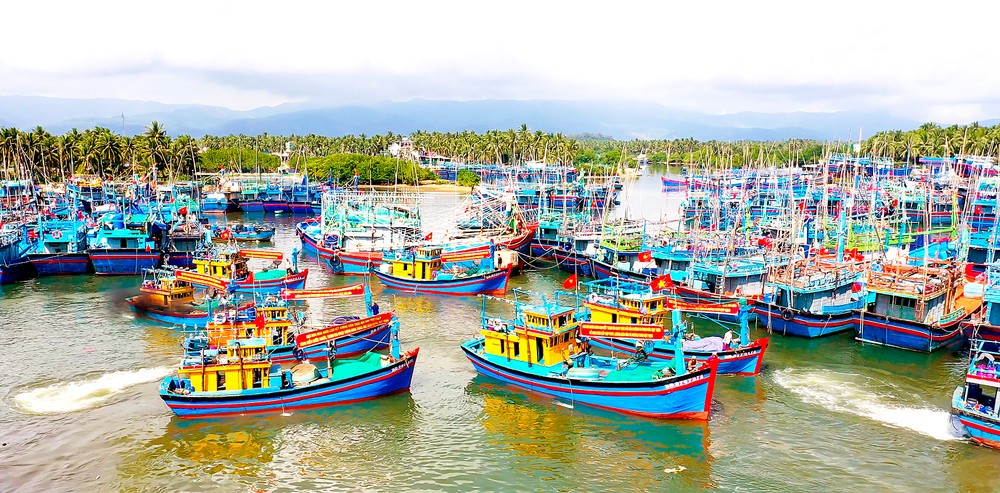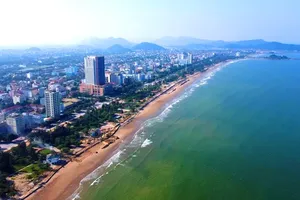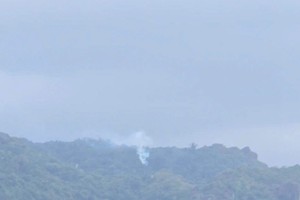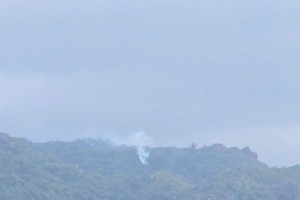
Fishing vessels in Binh Dinh Province
The implementation of Directive No. 32-CT/TW, issued on April 10, 2024, by the Secretariat, focuses on enhancing the Party's leadership in the fight against IUU fishing, as well as promoting sustainable development within the fisheries sector.
In response, coastal provinces have undertaken numerous specific initiatives, demonstrating a commitment to collaborate nationwide in order to eliminate the “yellow card” warning by 2024.
Concurrently, efforts are being made to restructure the fishing industry to ensure transparency, accountability, and sustainability. This approach aims to improve the living standards of fishermen while also safeguarding the sovereignty and rights of the nation over its maritime territories.
Recognizing the need to address IUU fishing as a critical and immediate concern, coastal provinces have recently undertaken a range of practical and effective measures to eliminate the EC's "yellow card" warning for Vietnamese seafood. The removal of this "yellow card" is crucial, as it will not only enhance the efficiency of seafood exports to the European Union but also foster opportunities for the sustainable development of aquaculture and seafood harvesting in Vietnam.
Ca Mau Province is home to 4,265 fishing vessels, including 1,542 that are 15 meters or longer and equipped with voyage monitoring equipment, while 7 major seaports accommodate numerous ships, with 5 of these being operational fishing ports.
Vice Chairman Le Van Su of the provincial People's Committee said that the local authorities have recently made great efforts in inspecting, monitoring, warning and reminding on the voyage monitoring system, contributing to limiting IUU fishing violations.
Elsewhere in the country, Binh Dinh Province has a total of 6,169 fishing vessels, including 3,221 offshore fishing vessels, according to Nguyen Huu Nghia, Head of the Fisheries Sub-Department.
He added that the local province has successfully registered close to 1,000 fishing vessels categorized as “2 nos” (no registration, no fishing license) and “3 nos” (no registration, no fishing license, no inspection). Additionally, vessel monitoring system (VMS) has been installed on all offshore fishing vessels in the province, achieving full compliance.
The province has effectively monitored 215 fishing vessels (ranging from 12m to under 15m) that are at significant risk of engaging in IUU fishing and operating in foreign waters while being displaced in the southern waters.
Recently, the People’s Council of Binh Dinh province approved a policy to support funding for purchasing and installing VMS equipment for this group of high-risk vessels. For the group of vessels that have not installed VMS equipment, Binh Dinh province has requested southern provinces to control and temporarily stop them from going offshore.
Currently, some 35 fishing vessels in Binh Dinh province are still operational but they have not been installed VMS equipment. Their names have been made public so that functional bodies can easily monitor, track and manage.
Head Nguyen Van Muoi of the Department of Fisheries of Quang Ngai province, informed that by November 2024, 2,976 out of 3,069 fishing vessels of this province had installed VMS equipment.
Despite ongoing issues with fishermen illegally fishing and facing arrests in many provinces, Ba Ria - Vung Tau Province has successfully avoided this problem since August 2022.
However, the increasing number of lost signal connections to monitored fishing vessels poses a significant risk, as verifying the cause of these incidents can be challenging.
Binh Thuan Province, one of the three vital fishing ground in the country, has recently made significant progress in combating IUU fishing. Thanks to close monitoring of high-risk vessels, in 2024, the province has not detected any fishing vessels violating foreign waters.
According to the People's Committee of Binh Thuan Province, up to now, the locality has made efforts to register and grant fishing licenses for "3 nos" fishing vessels, reaching over 95.3 percent while over 8,240 fishing vessels have been inspected and over 7,100 vessels have been granted valid fishing licenses.
The People's Council of Binh Thuan Province has recently approved a resolution that outlines the policy for subsidizing subscription fees for VMS equipment. It is anticipated that approximately 2,000 fishing vessels in the region will benefit from this support over a period of three years, amounting to a total financial commitment of nearly VND12.3 billion.
In relation to the outcomes of the implementation of the European Commission's recommendations on addressing IUU fishing during the fourth inspection in October 2023, Deputy Minister of Agriculture and Rural Development Phung Duc Tien reported that the fisheries sector across the country has largely addressed the issues outlined in the EC's recommendations.
The sector has established and finalized the legal framework, incorporating comprehensive consultations with the EC, thereby fulfilling the requirements for combating IUU fishing and promoting the sustainable development of the fisheries industry.
At present, the fisheries sector has predominantly equipped offshore fishing vessels with VMS technology. Fishing vessels that do not meet operational qualifications, as well as those identified as being at high risk of engaging in IUU fishing, have been cataloged, monitored, and managed by local authorities.
The oversight and regulation of fishing vessel operations at sea, facilitated by the VMS as well as the management of port entry and exit in certain regions, have been rigorously and comprehensively enforced in accordance with established regulations.
Regulations on traceability for exploited aquatic products have become more stringent following the fourth inspection.
The Ministry of Agriculture and Rural Development has initiated a comprehensive system requiring localities to log daily aquatic product unloadings at fishing ports via Google Sheets, while also enforcing an electronic traceability system to ensure transparency and legality in the sourcing of exported aquatic products, ultimately yielding significant progress in combating IUU fishing activities.
Law enforcement and handling of IUU fishing activities have also achieved some important outcomes. Investigation police have prosecuted 11 criminal cases; the investigation, verification and handling of IUU fishing violations have been strengthened, especially the handling of violations of disconnecting VMS equipment and illegal fishing in foreign waters.
The Ministry of Agriculture and Rural Development recognized that, alongside the positive outcomes mentioned, some tasks to address IUU fishing remain unresolved in line with the EC's recommendations.
Deputy Minister of Agriculture and Rural Development Phung Duc Tien stated that the Ministry will persist in establishing inter-sectoral working groups to oversee and evaluate the enforcement of regulations aimed at combating IUU fishing. Additionally, the Ministry will monitor, encourage, and provide guidance to localities in executing anti-IUU fishing initiatives, and will submit monthly reports to the Prime Minister regarding the outcomes of these efforts.
He said that addressing IUU fishing is essential for the fisheries sector, and lifting the "yellow card" would boost EU exports and foster sustainable aquaculture and seafood development in Vietnam.
Therefore, removing the "yellow card" warning is not only about addressing the EC's concerns but also about safeguarding national and ethnic interests, protecting the livelihoods of the people, and fostering a sustainable, responsible, and internationally integrated seafood industry. This effort is essential for developing a sustainable marine economy while ensuring the security and sovereignty of the country’s maritime territory.
























